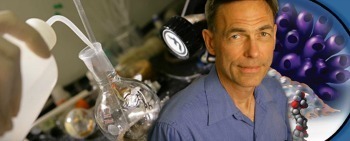Two ESTEEM students contributed to a large project that moved a Notre Dame research discovery into an FDA-approved clinical trial this year. A potential treatment for Niemann-Pick Type C disease, identified by longtime rare disease researchers Paul Helquist and Olaf Wiest of the Department of Chemistry and Biochemistry with collaborators at other universities, began a trial with three patients in September and is expected to expand. Capstone thesis projects by ESTEEM students Matthew Berg and Sean Liebscher under Helquist’s direction advanced the effort.

“This provided a good leg up in terms of what to expect in going forward beyond the basic laboratory research,” Helquist says. “Basically, the two students laid out possible corporate structures, licensing, patenting, and all those intellectual property type issues. It’s a major first for this effort at Notre Dame with respect to going that far along in drug development. Many pieces had to fall into place.”
Collaborators at Weill Cornell Medical College in New York, Washington University Medical School in St. Louis, the National Institutes of Health, and the Ara Parseghian Medical Research Foundation helped identify and develop the treatment. A startup company at Innovation Park, Lysomics LLC, helped win approval for the trials. NPC Therapeutics has licensed the technology for marketing if the drug wins approval.
The ESTEEM work was a key to preparing the discovery for trials, Helquist says. “I personally would not have had the time to gather all the materials that are necessary for an FDA submission,” he says. “That’s a huge effort. That was really a key role that Matt Berg in particular contributed as well as working through corporate structures that both students put into their capstone thesis projects. I have no background whatsoever in such activities. I was much better prepared going forward to deal with our partners to get to where we are today. It’s a major accomplishment for Notre Dame and its partners to put a treatment forward into the clinic.”